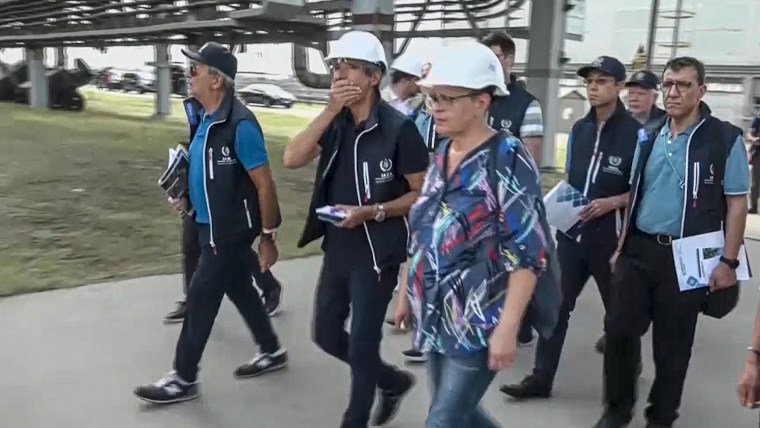The Kremlin is preparing an “energy attack” on Europe, Ukrainian President Volodymyr Zelenskyy said Saturday, a day after Russian energy giant Gazprom indefinitely suspended natural gas supplies to Germany through the Nord Stream 1 pipeline.
“Where Russia cannot do it by force of conventional weapons, it does so by force of energy weapons,” Zelenskyy said in a video address. “Russia is preparing for a decisive energy attack on all Europeans,” he said.
His comments came after Gazprom, the state-controlled company with a monopoly on Russian gas exports through the key pipeline, said Friday that it could no longer provide a time frame for restarting deliveries through Nord Stream 1.
It said an oil leak meant a pipeline turbine could not run safely and that it could not safely resume operations until all malfunctions had been resolved.
Siemens, the German manufacturer of the turbines, however, said in a statement that such leakages “do not usually affect the operation of a turbine and can be sealed on site,” adding that it had never suspended operations in the past. Despite the leak, there were additional turbines to operate the pipeline, the statement said.
The pipeline, which runs under the Baltic Sea to Germany, has historically supplied about a third of the gas exported from Russia to Europe, but it was already running at only 20% of capacity before flows were halted last week for maintenance.
Lower gas flows have already pushed up European prices by nearly 400% over the past year, sending electricity costs soaring and leading to accusations that Russia is weaponizing energy supplies. Moscow blames Western sanctions and technical issues for supply disruptions.
Zelenskyy said Russia was trying to attack with “poverty and political chaos where it cannot yet attack with missiles.”
The announcement about the pipeline came after finance ministers from the Group of Seven countries — Britain, Canada, France, Germany, Italy, Japan and the United States — agreed to impose a cap on the price of Russian oil, which they said would reduce Moscow’s “ability to fund its war.”
Elsewhere in Ukraine, Russian shelling hit the southern port city of Mykolaiv during the night, damaging a medical treatment facility, the city’s mayor said in a statement on his Telegram channel.
Oleksandr Senkevych did not specify whether there were any injuries in the overnight attack, which he said also damaged some residences.
Europe’s largest nuclear power plant in Zaphorizhzhia also continued to be caught in the crossfire at the frontlines of the war, fueling fears of a nuclear disaster.
Rafael Grossi, the director general of the International Atomic Energy Agency said Saturday that the plant had lost external power. Ukrainian staff operating the plant told the IAEA inspectors that the fourth and last operational line was down. The other three were lost earlier in the war.
Only one out of six nuclear reactors at the site was in operation, the IAEA said in a statement Saturday.
The sole reactor was producing electricity for cooling and powering households, with a reserve line supplying electricity to the facility.
Russian forces captured the plant shortly after they moved into Ukraine, and the two sides have exchanged accusations about shelling the plant.
Zelenskyy blamed Russian shelling for an Aug. 25 shutdown that severed the Zaphorizhzhia plant from the national grid, narrowly avoiding a radiation leak and prompting blackouts across Ukraine.
Russia’s Defense Ministry said Ukrainian troops launched another attempt to seize the plant late Friday, despite the IAEA tour.
NBC News has not been able to verify the claims from either side.
The IAEA, whose experts have been stationed at the plant since Thursday, said a “secure off-site power supply” as well as backup systems were essential for nuclear safety, adding that their presence at the plant was a “game changer.”
Grossi is set to brief the U.N. Security Council next week following the inspection of the plant.
Associated Press contributed.







